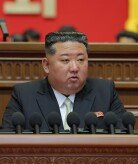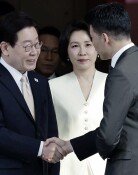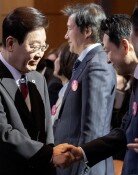Biased personnel administration policies must end
Biased personnel administration policies must end
Posted February. 05, 2001 15:50,
The main culprit for the insolvency of the Hankook Real Estate Trust (HRET) is the successive regimes that distributed the presidencies of public enterprises to loyalists as if they were the spoils of war. Little change has been made in the way these posts are doled out through the successive military and civilian regimes as well as the incumbent "government of the people."
Those who caused the HRET to amass nearly two trillion won in debts are its two presidents, who were appointed from the political sphere and the government supervisory agency. The two men provided hundreds of billion of won in preferential loans to certain construction companies under pressure from the political sector and lobbying from local businesses.
Biased personnel appointments have never been eradicated. In the insolvent trust corporation, there were many executives who were transferred from its parent agency, the Korea Appraisal Board.
The Kim Dae-Jung government, which set sail amid the economic crisis, hoisted slogans for the structural reform of the public enterprises. In the initial stage, the government intended to draw many top executives of public enterprises from among renowned specialists, while awkwardly distributing a few of them to the ruling parties, the Millennium Democratic Party (MDP) and its coalition partner, the United Liberal Democrats (ULD).
The atmosphere suddenly changed ahead of the April 13 general elections and the top posts at public corporations were dominated by officials appointed from above, mostly MDP members who failed to win their party`s parliamentary candidacies or ULD members who were given political considerations. In the wake of the ULD`s return to its coalition partnership with the MDP, it was alleged that some ULD members were busy lobbying for executive posts at state-run enterprises, a sharp contrast to the initial phase of the incumbent administration.
It is hardly expected that those who were appointed from above could adequately undertake structural reforms such as layoffs or manpower reductions, since they were obliged to appease trade unions by giving carrots to unionists, including consolation or encouragement money via under-the-table contracts.
While retaining this type of appointment system, the professed restructuring in the public sector is almost sure to end as nothing more than empty slogans.
As was disclosed in the case of the HRET, losses stemming from the nonviable public enterprises will have to be shouldered by taxpayers. While the government is whipping up private firms to undertake restructuring, the government is giving unjustified preferential treatment to non-specialist executives of public corporations. It is more than clear that little things are expected from those government appointees, whose managerial and specialist capabilities have never been tested.
Although Prime Minister Lee Han-Dong vowed in his policy statement Monday that the government would work out measures to revamp personnel appointments in the state-run enterprises, it is doubtful that his pledge would be translated into action. The public sector restructuring ought to begin with the eviction of their presidents, whose managerial capabilities were not verified.







